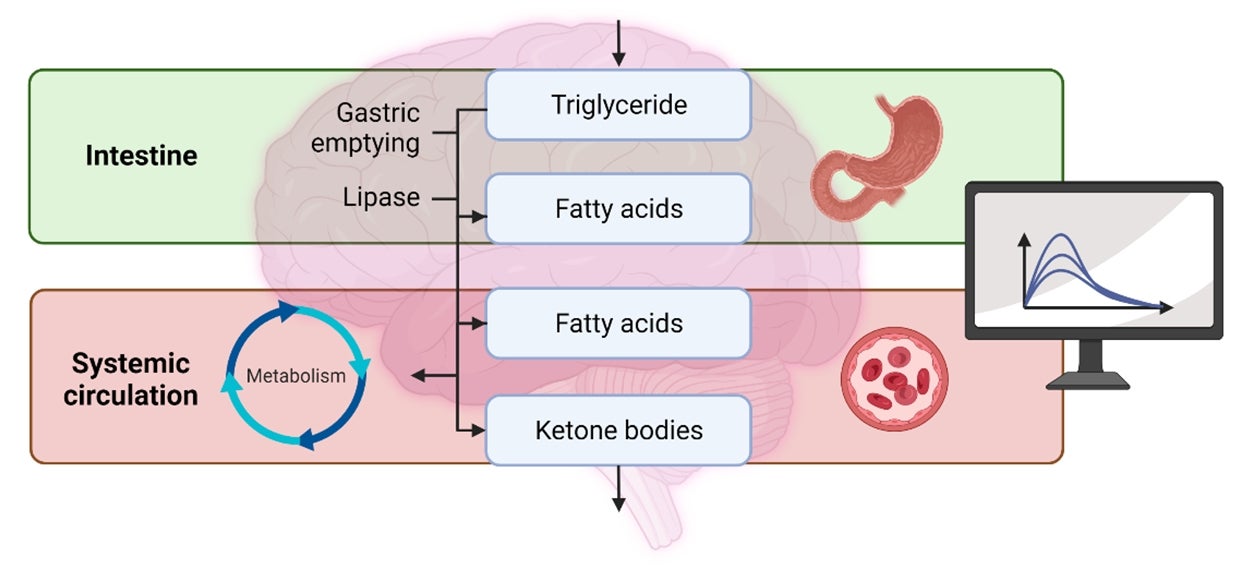Virtual trials to streamline drug development
April 08, 2022NUS researchers have developed a model to predict the metabolism of an investigational product for optimising the drug formulation.
In Singapore, one in 10 people above the age of 60 suffers from dementia. Alzheimer’s disease is a progressive neurodegenerative disorder and the most common cause of dementia globally. The disease affects brain metabolism, resulting in reduced sugar use and subsequently insufficient energy supply. Ketogenic diets have shown promise in addressing Alzheimer’s disease by increasing the body’s use of fat to produce ketone bodies. However, ketogenic diets limit the intake of fat and protein and can be very difficult for patients to comply with the requirements.
Scientists at Cerecin Pte. Ltd., a Singapore-based healthcare company, have developed specialised drugs that can be converted to ketone bodies without the need for dietary restrictions. When consumed, these drugs are converted in the intestines to fatty acids and undergo a complex chain of biochemical pathways leading to the production of ketone bodies. These ketone bodies provide the brain with an alternative energy source when sugars are not readily available. The formulation of such drugs may therefore be used to increase the brain’s energy supply and provide therapeutic support for patients with mild to moderate Alzheimer’s disease.
Recently, a team of researchers led by Associate Professor Matthias G. WACKER from the Department of Pharmacy, National University of Singapore together with scientists from Cerecin Pte. Ltd. and Monash University developed a computer model that can predict the amounts of ketone bodies that become available after the intake of the drug Tricaprilin. This drug, which is being developed by Cerecin Pte. Ltd., is still in clinical development. The research outcome would help provide guidance on the drug formulation required for Alzheimer patients.
Prof Wacker said, “There are many knowledge gaps that make an accurate forecast of the biochemical processes very challenging but our team managed to overcome them. Our simulations clearly show that the dosage form, whether it is a powder or a liquid, is a major contributing factor impacting the amount of energy that reaches the brain.”
“The model which we had developed can now be used to streamline the development of other drugs by testing drug formulations in virtual patient populations before they are tested in a real clinical trial,” added Prof Wacker.
In the future, the collaborators will further harness this new technology to identify better treatments for patients suffering from dementia.

Illustration of the computer model describing the processes involved in the conversion of the drug Tricaprilin to ketone bodies as well as their elimination from the human body. [Created with Biorender.com]


